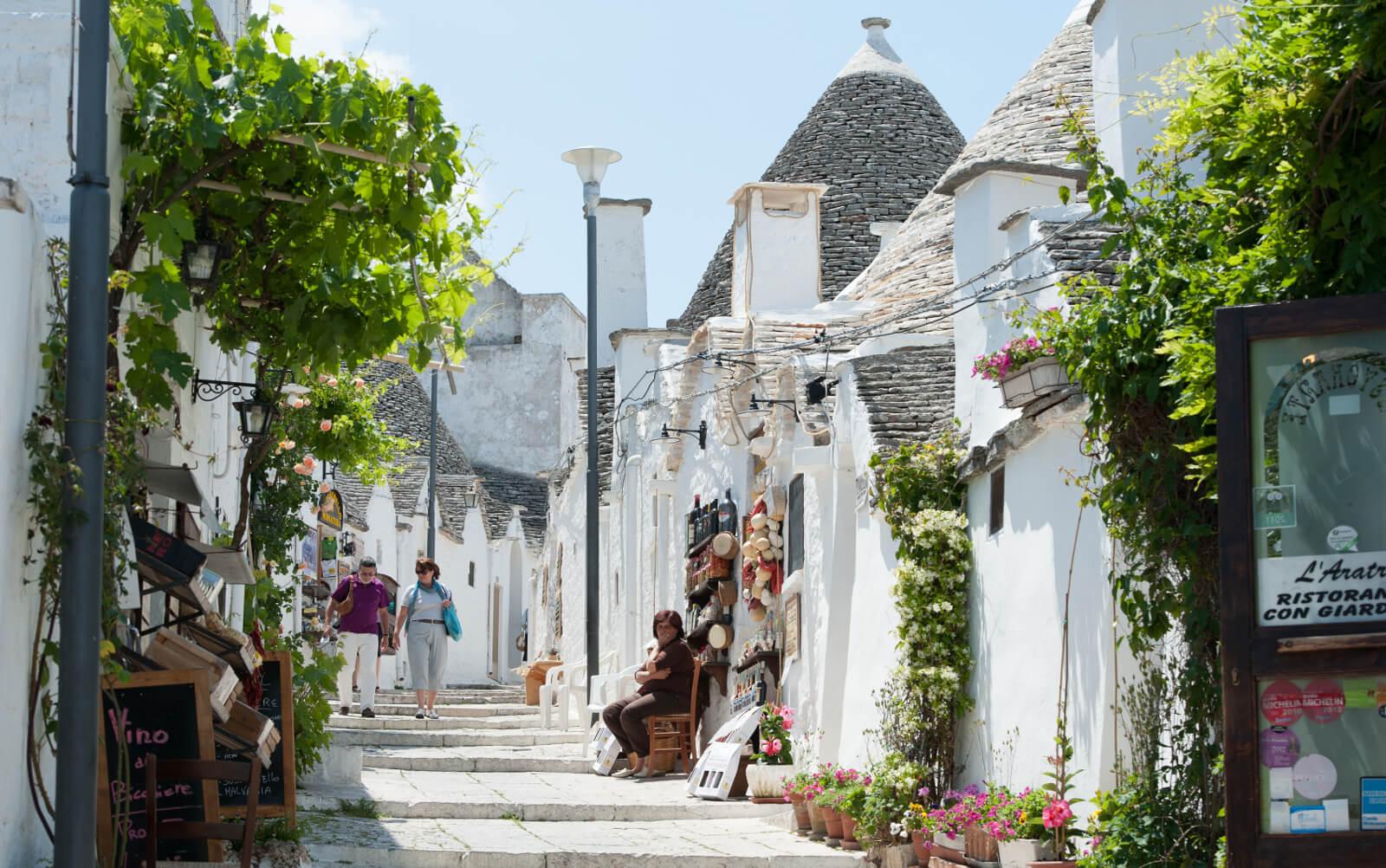![]()

When not pursuing his master’s in architecture, B&R guide Luca Pacchioni brings both a unique eye and an unmistakable passion to the trips he guides—he is Italian, after all. Nowhere is this more true than Puglia.
The region may be lesser-known than some of its famous cousins (Tuscany and Amalfi are household names by now), but as Luca explains, Puglia is just as apt to create awe-inspiring moments. Below, he shares a few of his favourites.
Luca’s Puglia
Ostuni
Ostuni is a little town on the top of a hill, just right beside the seaside. We arrive there and do a little tour around the city and Paola, a local, comes and brings us all around. There, because it’s at the top of the hill, all the houses have been built one attached to the other. So they’re very narrow, but three stories high.

One time, on a bespoke trip, we went through one of these houses with workers inside—they were renovating. The travellers were interested in knowing a little bit more about the house, so I kind of explained to them what I know, but I didn’t really know precisely what they asked me. But the owner was just outside the window, and he invited us to join. We walked inside and went up the narrow steps, with all the stone they were renovating all around us, up the to the terrace. So we had a chance to explore a little bit what was real Ostuni architecture.
I find it interesting to experience places by the architecture because it kind of gets you the feeling of how the place has developed and how it’s going to develop next. So it’s always a good key for reading the place.
Litoranea to Santa Maria di Leuca
It’s a road that goes all the way along the sea, south to Santa Maria di Leuca. You bike a little and have this beautiful view, you come from the land and then you bike a little bit on the coast but higher than the level of the sea. So you have all this view, and then suddenly you just go down into Porto Cesareo and it’s kind of astonishing—the view, the air. I’ve done it in spring and I’ve done it in autumn, so I kind of see all the colour and all the change, and it’s always beautiful. You can see green and all the different colours of spring, then in the fall it became more rustic with all the stone and all the earth had been harvested. It’s very impressive!
Lecce: Piazza Sant’Oronzo

Because of the unique mixing of architecture and history and visual experience, I pointed out Lecce’s Piazza Sant’Oronzo, the square in Lecce (pictured above). You find different cities with different layers that kind of collaborate, or—how do you say?— create the history of the city itself. So, you know, you’ve got the Roman ages, you’ve got the medieval ages and then you’ve got the baroque.
And it’s very fascinating, between the light and the colour, from white to what is a slightly cream pink. Basically it’s the stone, tufo (in English, tuff), the typical stone of Puglia. They built everything with this stone because it was cheap, because you can dig down and under the layer of soil you have the stone.


